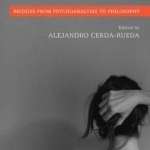Sex and Nothing: Bridges from Psychoanalysis to Philosophy
BookThis item doesn’t have any media yet
2016 | Philosophy, Psychology & Social Sciences
From its etymological roots, sex is related to a scission, Latin for sectus, secare, meaning "to divide or cut." Therefore, regardless of the various studies applied to defining sex as inscribed by discursive acts, i.e. merely a 'performatively enacted signification,' there is something more to sex than just a social construction or an aprioristic substance. Sex is irreducible to meaning or knowledge. This is why psychoanalysis cannot be formulated as an erotology nor a science of sex (scientia sexualis). Following this argumentation, in the final class of his eleventh seminar, Lacan asserts that psychoanalysis has proven to be uncreative in the realm of sexuality. Henceforth, sex does not engrave itself within the symbolic: only the failure of its inscription is marked in the symbolic. In this matter, sex escapes the symbolic restraints of language; however, it is through its failure that it manifests itself through the symbolic, e.g. symptoms or dream life. So, what is sex?
Sex and Nothing embarks upon a dialogue between colleagues and friends interested in bridging psychoanalysis and philosophy, linking sex and thought, where what emerges is a greater awareness of the irreducucibility of sex to the discourse of knowledge and meaning: in other words, sex and nothing.With contributions by Joan Copjec, Mladen Dolar, Sigi Jottkandt, Cristina Soto van der Plas, Jelica Sumic, Samo Tomsic, Gabriel Tupinamba, Daniel Tutt, Slavoj iek, and Alenka Zupancic.
Related Items:
| Published by | Karnac Books |
| Edition | Unknown |
| ISBN | 9781782203384 |
| Language | N/A |
Images And Data Courtesy Of: Karnac Books.
This content (including text, images, videos and other media) is published and used in accordance
with Fair Use.
